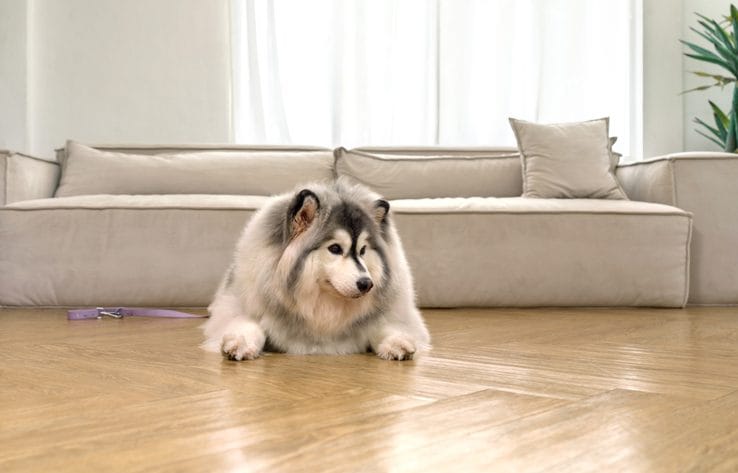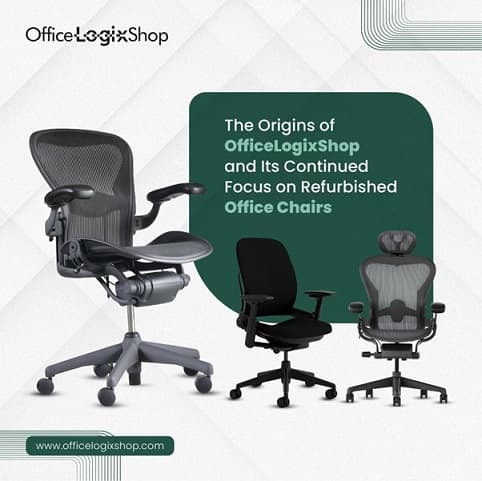
Best for pets – vinyl plank vs laminate flooring
When choosing the right flooring for your home, consider your household’s requirements. You may have to accommodate elderly family members, children, or pets, each with different flooring needs.
Whether you’re a dog family, a cat family, or perhaps both, the type of flooring you choose is important. Picking a flooring material purely for its aesthetic value is fine in the short term, but if it’s likely to get damaged or worn over time, it will only cost more in repairs and replacement in the long run.
Some materials are more suitable for pets than others. For example, carpet can be less desirable for pet owners since it can easily stain under muddy paws and become difficult to clean if a pet regularly sheds fur. In contrast, vinyl plank and laminate flooring are both popular contenders for pet-friendly flooring, for reasons that we’ll discuss in this article.
Which is better for homes with pets, vinyl or laminate?
The two flooring types have similar qualities that make them suitable for pets, but in some areas, one or the other may be the most suitable. Whether you choose vinyl plank or laminate flooring will depend on your pet’s exact needs.
Durability
Particularly large or energetic pets may often run around the home, perhaps jumping off of furniture or taking corners at high speeds. Their claws’ repeated, heavy contact with the flooring has the potential to cause damage, so finding a durable material is important.
Both vinyl plank and laminate are hard-wearing flooring materials. They have a similar composition, comprising multiple layers that include a moisture barrier and an uppermost wear layer. The top layer is designed to protect the pattern of the boards, preventing scratches, dents, and stains.
Water-resistance
Unexpected spills are always a risk when pets are present. Boisterous dogs that knock into furniture and clambering cats that travel around the house using anything but the floor can knock cups and glasses off of tables. Pets also splash water from their bowls when drinking. Both older and younger pets may also have an accident indoors, so water-resistant flooring can be beneficial for many homes with animals.
The vinyl and laminate’s moisture barrier prevents water damage from liquid spills. However, vinyl planks tend to have higher water resistance than laminate. Many vinyl flooring products are available in specifically water-resistant versions, with some even offering full waterproofing qualities. Spills should be cleaned up promptly, but the boards can withstand small spills and the main concern from water damage is to the adhesive of the planks, not the physical planks themselves.
Laminate planks, however, have relatively poor water resistance in comparison. Spills should be cleaned quickly to avoid damage, as the boards can swell, warp, crack or lift if exposed to liquid for too long. The only fix for this type of damage is a complete replacement of the boards. Some laminate products have better water-resistance properties, but you may need to shop around.
Slip-resistance
If a pet regularly runs around the home, consider flooring with high slip resistance to avoid accidents or injuries from the animal sliding on the floors. Laminate flooring can be slippery underfoot, whereas vinyl planks are usually anti-slip, only becoming slippery when wet.
Cleaning
Muddy paws and shedding fur are the enemy of most pet owners, and continuous cleaning becomes more tedious when the flooring is harder to clean. Both laminate and vinyl plank has a smooth surface and can be easily vacuumed and mopped for quick, regular cleaning.
Comfort
You may have purchased an expensive pet bed, but chances are your pet spends a lot of time lying on the floor. In these instances, the comfort of your flooring may be a factor to consider. Both vinyl plank and laminate flooring are fairly smooth underfoot, but vinyl tends to be softer and warmer than alternative hard flooring options, including laminate.
Sound reduction
The noise of a pet’s paws on the floor can be louder than you think. If you have downstairs neighbors or prefer a quieter home environment, your flooring’s sound-reduction qualities can make a big difference. Vinyl planks tend to provide much better sound reduction than laminate because they’re softer underfoot and absorb sounds well.
Choosing between vinyl and laminate for homes with pets
Both flooring types are available in various colors, styles, and finishes, with options to suit a wide range of interiors. The same applies to cost, with laminate and vinyl flooring products priced to accommodate most budgets.
Vinyl plank tends to tick the most boxes for the average pet owner, but suitable laminate products are out there; it just may take some extra time to research the best one for your needs.
Any type of flooring can cause safety concerns for you and your pets if installed incorrectly. Always have the flooring installed by a professional to ensure maximum safety and increase the floors’ lifespan.
——————————————————————————————————————————-
Powerhouse is a full-service home and commercial services company based in Texas.


